 Thang Long Imperial Citadel in Hanoi (photo: Thanh Long-Ha Noi Heritage Preservation Center) Thang Long Imperial Citadel in Hanoi (photo: Thanh Long-Ha Noi Heritage Preservation Center) |
B: And we feel closer to you when we read your comments, suggestions, and corrections as well as your stories of your families, hometowns, and work.
A: Yes, reading listeners’ letters is my favorite work activity. Sanil Deep of India reported: “The reception on 12020 KHZ is perfect both at 11.30 and 13.30 hours UTC every day. This is the best frequency for the time being. 7220 KHZ at 16.00 hours is also performing well in my area.”
B: He said: “The Saturday music show and Sunday show are all my favorite programs where I can hear various songs. You also play many songs at the end of your program which always makes listeners like me happy. Now I’m familiar with many songs from Vietnam. Your programs in the present format give listeners a good picture of your country and its people.The Letter Box is on top in the mind of listeners. This listener participation program maintains a superior position because of veteran hosts.”
A: From Bangladesh Abdul Mannan reported listening to VOV’s program on November 9, 2024 on the frequency of 7220 khz. Good signal and clear sound quality were observed with SIO code at 444.
B: Mannan said: “I’m a regular listener of your English program.The reception condition is very good. I like your news, music, and others programs, especially the Letter Box.”
A: Thank you so much for the words of encouragement. Your feedback helps make our program better.
B: Mannan has a question: “How many International Airports in Vietnam?”
A: Vietnam's aviation industry is experiencing robust growth with the establishment of many more modern airports. Vietnam now has 22 civilian airports, including 12 international airports.
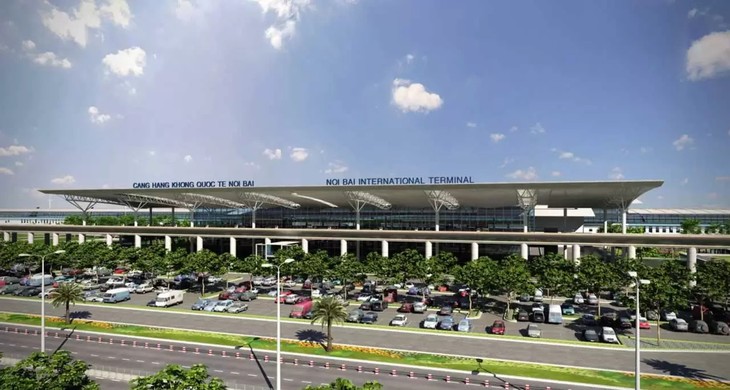 Noi Bai International Airport in Hanoi (photo: ACV) Noi Bai International Airport in Hanoi (photo: ACV) |
B: Noi Bai International Airport, the largest airport in the north and the second-largest in Vietnam, serves most flights to and from Hanoi, as well as northern provinces. Noi Bai Airport now covers an area of 300ha, accommodating up to 30 million passengers per year.
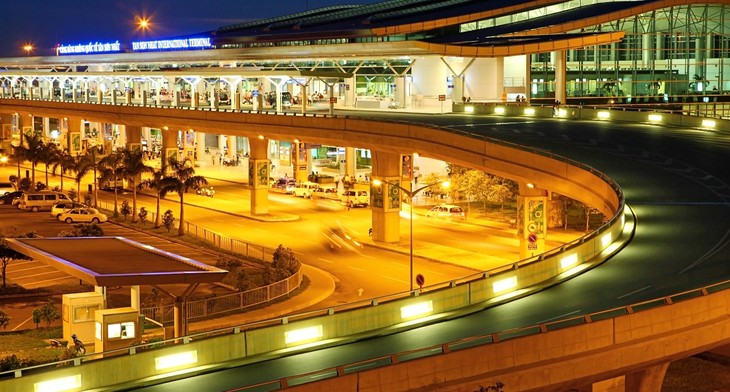 Tan Son Nhat International Airport in Ho Chi Minh City Tan Son Nhat International Airport in Ho Chi Minh City |
A: Tan Son Nhat International Airport in Ho Chi Minh City, with the highest passenger service capacity in Vietnam, can handle over 30 million passengers annually. It holds a strategic position as a crucial transportation and trading hub for regional and global connections. It significantly contributes to the robust development of the economy, politics, and tourism in Ho Chi Minh City and southern provinces.
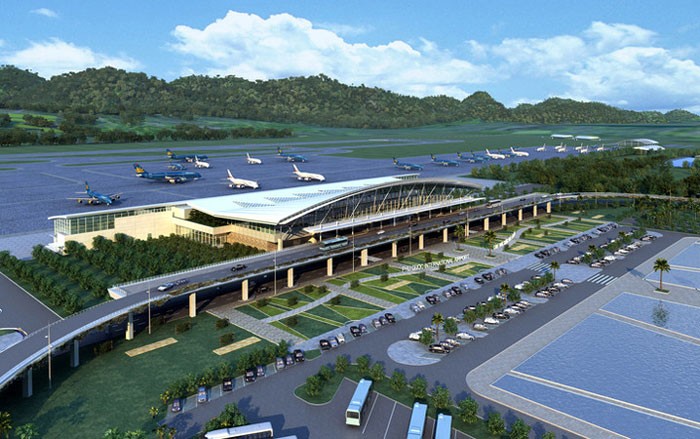 Phu Quoc International Airport Phu Quoc International Airport |
B: Phu Quoc International Airport on the resort island of Phu Quoc has an average service capacity of 3 to 4 million passengers per year. There are 16 airlines flying between Phu Quoc and 46 airports around the world, including Seoul, Bangkok, and Kuala Lumpur.
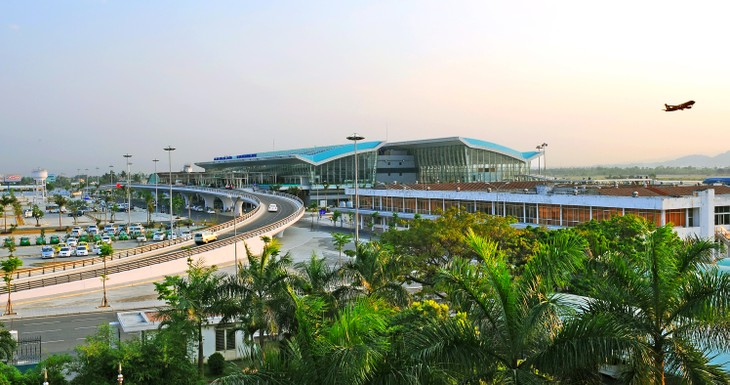 Da Nang International Airport Da Nang International Airport |
A: Da Nang International Airport is considered one of the most developed and vibrant airports in Vietnam. It serves an average of 10,000 passengers daily. The top international destinations from here are Seoul and Hong Kong (China). The two longest flights are between Da Nang and Ahmedabad of India which takes around 5 hours and 45 minutes and between Da Nang and Tokyo with a flight time of 5 hours.
B: Other international airports include Cam Ranh in Khanh Hoa province, Van Don in Quang Ninh province, and Can Tho in Can Tho city.
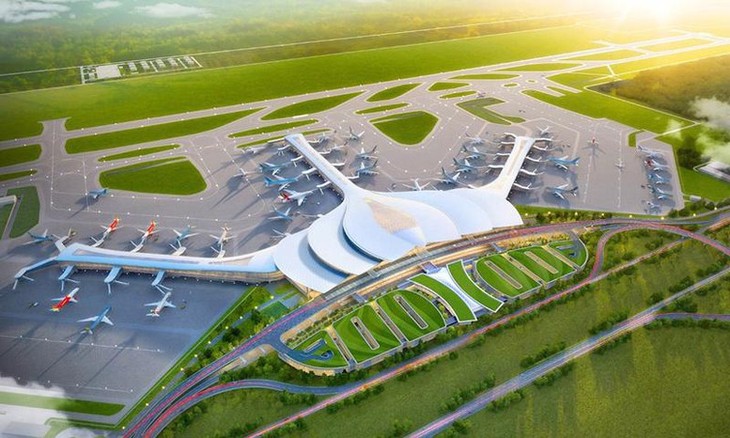 Long Thanh International Airport is under construciton in Dong Nai province. (photo: dangcongsan.vn) Long Thanh International Airport is under construciton in Dong Nai province. (photo: dangcongsan.vn) |
A: Notably, Long Thanh International Airport is taking shape in Dong Nai province. It has a designed capacity of 100 million passengers and 5 million tons of cargo per year when all construction phases completed. Phase 1 is projected to be put into operation in 2026, with an annual capacity of 25 million passengers. In Phase 2, it will be expanded with an additional open-configuration runway and terminal to service 50 million passengers per year. And when Phase 3 is completed, it will be the largest airport in Vietnam.
B: As traveling has never been more convenient with upgraded transport infrastructure, we are looking forward tomeeting you all in Vietnam one day.
A: I’m reading an email from Otman Saud, who lives in South Yorkshire, the UK. He listened to VOV’s program on 9730 KHz on November 10and rated SINPO at 31331. He said: “The female host introduced the show in English then music played. Unfortunately the China Radio International programming starting at the same time of 19:00 UTC drowned out most of the VOV program. I was unable to get a recording.”
B: I’m sorry to hear that. We’ll forward your remarks to our technicians to process with a hope they can figure out the problem.
A: From India, Mr. Najimuddin often tunes in to our program on 7220 khz on a Grundig YB 80 receiver and marked SINPO 44343.
B: He said: “The world news, especially on Middle East issues, is updated for me through your program. I enjoy your very nice songs. Other programs are always my favourite for a reliable source of knowledge.”
A: Joandric Ávila Fernández of Costa Rica said he listened to the programs and was shocked by the news of natural disasters in Vietnam recently. “I believe that your country will successfully rebuild the infrastructure under the leadership of the Communist Party of Vietnam and the support of other countries.”
B: Japanese listener Yagi Susumu said the super typhoon Yagi caused heavy losses in Vietnam and some countries. What has Vietnam done to resolve its consequences?”
A: Thank you all very much for sharing your sympathy with us during the difficult time. The total economic damage caused by typhoon Yagi was estimated at about 3.3 billion USD. Its intensity and unprecedented developments resulted in substantial damage across Vietnam’s 26 northern provinces. Several measures have been implemented to mitigate the aftermath of the storm, which still lingers on. The government has provided affected localities with cash, rice, and crop seeds. Here’s a report from VOV’s reporter in Quang Ninh:
Fishermen in Quang Ninh, one of the provinces most affected by typhoon Yagi, are resuming their production from scratch. Dương Văn Xuyên, Director of Bái Tử Long Fishing Village Cooperative, said they have repaired buoys and 100 fish cages to raise small young fish.
"I choose different types and sizes of fish so that they can survive well. Some types can be sold this New Year holiday and some next summer. This is a risky time to release the breed, because the windy weather is not favorable. But we cannot leave the cages empty. We have to take the risk. The best time to release the breed is in February, March, and April. We lost everything, so I have to do it again,” Xuyen said.
Vu Van Tuan of Thuc Thach Cooperative said that nearly two months after the super typhoon swept away most of his assets, he started to farm the first batch of oysters in the sea.
"The price of small oysters has doubled. It’s very difficult to recover quickly. We estimate that with about 400,000 USD in investment capital and 15 workers, it will take us one year to recover,” Tuan said.
Tran Dinh Luan, Director of the Directorate of Fisheries said authorities have collected data and connect localities with suppliers of breeds such as oysters, fish, and shrimps.
"We request localities to strictly manage prices to prevent those who take advantage of the situation to gain personal benefits, and ignore the goal of helping people restore production,” Luan said.
The aquaculture sector of Quang Ninh province was severely damaged by the devastating storm. So far cooperatives have rebuilt farming platforms and half of the cages have restored production.
A: Like the people in Quang Ninh province, people in other localities affected by natural disasters are striving to rebuild their lives. VOV has regularly reported on activities to restore housing, infrastructure, and livelihoods while strengthening community resilience for future natural disasters.
B: If you miss any of our broadcast, please visit our website vovworld.vn to listen again.
A: We welcome your feedback at English Service, VOVWORLD, the Voice of Vietnam, 45 Ba Trieu street, Hanoi, Vietnam. You can email us at englishsection@vov.vn. Once again, thank you all for listening. Goodbye!